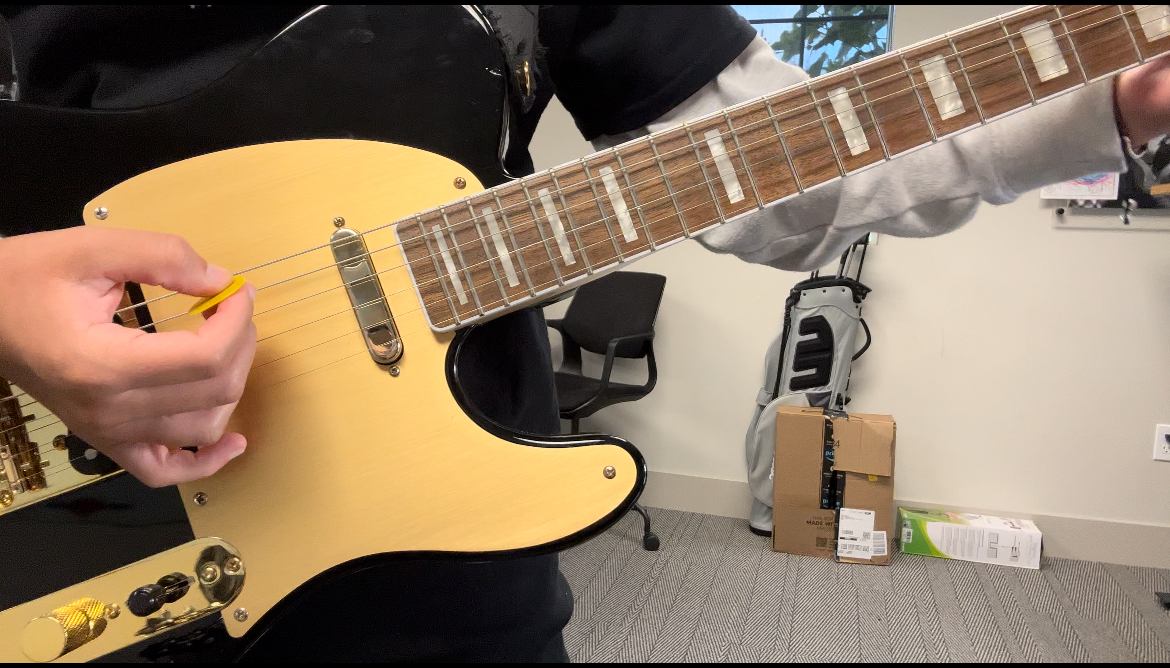From learning how to play small riffs to writing original songs, as a beginner, guitar can seem difficult to pick up, but this article will help beginners to be set up for success.
“Fender Squires are great starting guitars; they are high quality but low price. Marcus Miller Sire guitars are also a good quality low budget option,” senior Tanner White said.
While prices may range, most of those brands of guitars will last and will be good quality if someone isn’t sure they want to commit to spending a lot of money. Learning the technical aspects of guitar can be intimidating as well as not knowing where to start or how to keep going, but there are many easy places to start.
“Starting off, learn all the different parts of your instrument and the names of each string and the notes on each fret. For theory, [learn] the major, minor, pentatonic and blues scales for every key, along with the corresponding chords with each scale. For technique, learn proper picking and strumming as well as correct grip on the neck. Then focus on the best fingering for scales and chords,” White said.
As a beginner, there are many ways to express music and feel with very little chords or knowledge. It may be hard to stay motivated when some don’t expect the challenges that may come with just starting out. There are a few things to look out for and be aware of.
“One challenge is understanding [that] there will be a learning curve to guitar technique and [it] may be frustrating at first. It’s important to push through this phase and keep learning when it’s hard. Take breaks when you need to. Another challenge is comparison—learning to not compare yourself to other musicians not only at the beginning of your musical journey, but throughout your whole musical career,” White said.
While there are some bad habits a person may not notice they pick up on, there are also good habits to practice to help correct them. It may take a while to break out of them but once the progression starts to pick up learning new things can come quicker and easier.
“A bad habit can be developing bad technique which can lead to different injuries over time, especially the hand that holds the neck. A good habit to have can be having a consistent playing schedule, playing with other musicians, recording yourself, practicing with a metronome and transcribing and learning songs, licks and solos from other players you admire,” White said.
While there may be some unknowns about guitar, there are resources and tools to help. Practice helps lead to progression, not perfection, so it’s important to not give up when it gets hard.
“Always remember: you are your own person with your own style and voice. There will always be someone ‘above’ you in your playing, but learn to be inspired by that instead of being jealous or insecure,” White said.
Categories:
Tanner White: Guitar Guide for Beginners
May 27, 2024
Photo by Tanner White
Sophia Kothe plays a 40th anniversary Fender Squire Stratocaster. She has been playing guitar for two years. “Sophia has improved so much over the past two years and has grown so much in her style,” freshman Kaiya Barris said.
Story continues below advertisement







